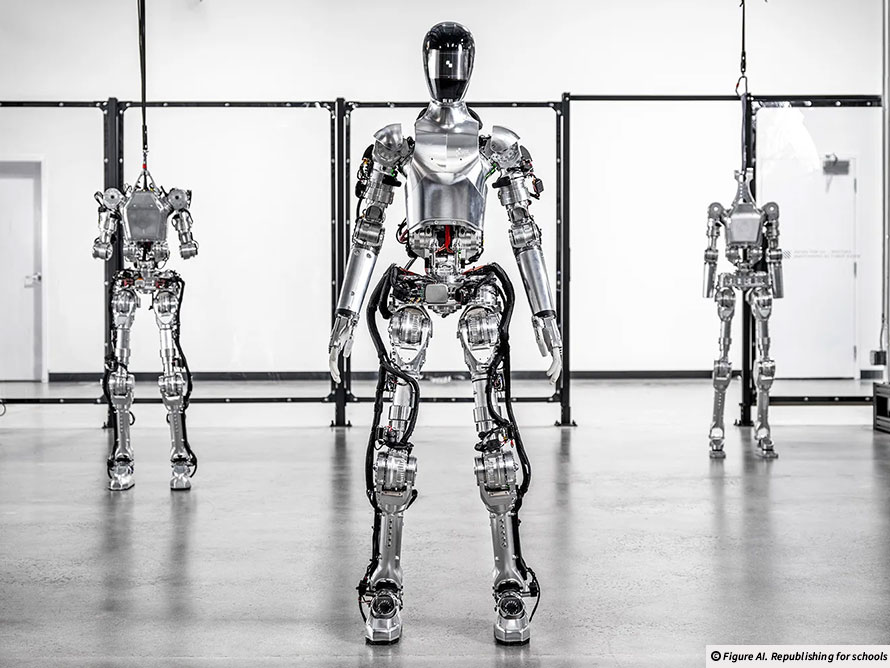Should we fear an AI future? Millions of jobs might be at risk as tech giants invest in a company making robot labourers to complete everyday tasks.
Droid factory to churn out humanoid workers
 New hires: Figure AI bots (above) won’t strike, take holidays, grumble or ask for tea breaks.
New hires: Figure AI bots (above) won’t strike, take holidays, grumble or ask for tea breaks. Glossary
AI - A computer programme that has been designed to think.
Android - A robot that looks like a human being (in science fiction).
Nvidia - An American technology company known for its supply of AI hardware and software.
CEO - The Chief Executive Officer is the highest ranking person in a company. They are responsible for making decisions about the company's future.
Industrial Revolution - A period of sudden, rapid industrialisation that transforms a country from an agricultural to an industrial economy.
Futurist - A person who specialises in making predictions about the future based on current trends.
